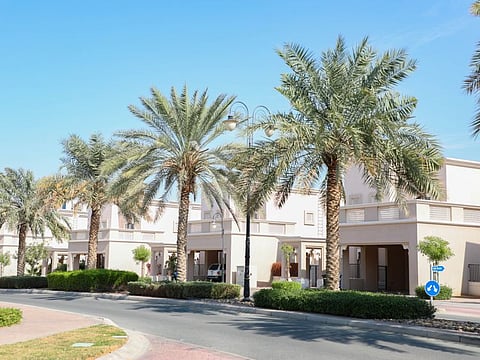Dubai homeowners demand reduction in service charges for first-half 2020
Fees remain the same even if owners did not use facilities in recent months

Dubai: Property owners are continuing to demand reduced service charges for the first half of the year. With many of them skipping payments, stating Covid-19 as an excuse, payment collections since February have dropped by 70-75 per cent.
As the payment backlog piles up, owner association management companies are now sending out distress signals. Real estate experts say service charges are required for the upkeep of properties. It is a cost that is needed to run a building and is not dependent on whether price of the property or its rent goes down.
In a recent move the Dubai real estate regulator has issued notice that all such payments need to be made up to date to ensure the upkeep and wellbeing of the community.
Residents, however, are reasoning otherwise. Eduard Andonov, owner of a 650-sq-ft studio in Motor City, usually pays an annual service charge of Dh9,000. This year his half yearly service charges have come to Dh4,550. “Service charges should have been reduced for the first part of 2020,” he says.
“The facilities that we are entitled to use were closed down due to the coronavirus since March. We did not use the pools, gymnasiums or the squash court. I don’t think that we should pay for something that we haven’t used.”
Andonov demands that the real estate regulator should communicate with the developer and reduce the service charge for the first half of 2020.
Another property owner in the Greens says that although he has no complaints about the services provided by the developer, property values have declined significantly since the beginning of the year and rentals have softened as well. “But the service fees have been constant. I have raised it with my developer, and am awaiting a response.”
Operation and upkeep
According to legal expert John Peacock, head of indirect tax and conveyancing at BSA Ahmad Bin Hezeem and Associates, service charges are levied based on an annual budget, which covers the cost of running the community, including its facilities. “Therefore, service charges are collectible even if no one uses the facilities as the costs of maintenance and operation of the facilities continue irrespective of whether or not they are used,” he says. “Each owner must know that they own an undivided share in all those facilities... and therefore must contribute towards their operation and upkeep.”
He further explains that the service charges for each unit are in accordance with a participation quota or unit entitlement, which means the annual cost is a ratio of the unit’s size to the aggregate of the size of all the units.
A swimming pool, he points out, would entail the same cost for chemicals, cleaning and day-to-day maintenance irrespective if someone uses it. “The same for a gym, sauna, escalator or lift.”
However in the event that there is a reduction in expenses, such as a decrease in electricity and water costs as a result of the facilities not being in use, then these “savings” will be carried over to the following financial year and will influence the appropriate service charges required, explains Peacock.
Pressure on utilities
Mahmoud AlBurai, vice-president of the International Real Estate Federation of Arab Countries, notes that the Covid-19 pandemic has increased pressure on utilities, including AC, and has increased demand for sanitising and disinfection in a building.”
However, he maintains that to make real estate more attractive, service charges need to go down. “By sustainable energy consumption and better service provider management, a synergy can be created,” says AlBurai.






